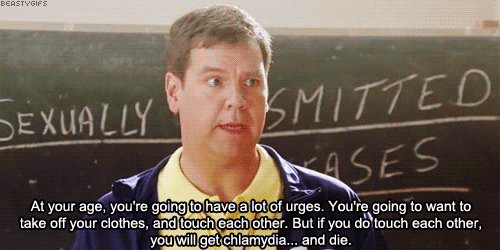Everybody remembers their first sex ed class. Mine was in fifth grade. The two fifth grade teachers and the two guidance counselors gathered us all together in a classroom and showed us a presentation.
I sat there, mortified, while they showed us pictures of genitals riddled with STDs.
Basically, it was a “Mean Girls” scenario.
Except they didn’t tell us what condoms were.
The only form of birth control they told us about was the pill. And all they really said was that it prevented pregnancy most of the time.
They didn’t mention the other benefits like clearing up skin, lightening periods, preventing ovarian cysts and stopping anemia.
They didn’t tell us that there are a dozen other forms of birth control you can use.
Really, they didn’t tell us anything.
My story is not unique. Only 24 states have mandated sex education, and only two require that religion cannot be promoted.
And it’s not just the United States that has issues.
India is even worse when it comes to sex education.
The basis for India’s lack of sex education is similar to ours--a stigma surrounding sex ed in society. Sexual health is not seen as important in Indian health care because of cultural practices.
In the US, over half of the states mandate HIV education. In India, only 35 percent of males and 19 percent of females have knowledge about HIV and AIDS.
According to the World Association for Sexual Health, comprehensive sex education is a basic human right.
So, what can we do?
We destigmatize sex education and sexual health. We talk about it with our children, in our classrooms and in our homes. We follow other countries like the Netherlands.
In the Netherlands, they begin teaching sex ed at the age of four. Everything is age-appropriate, of course. Young children learn about things like love and marriage. By the time students are seven years old, they can properly name every single body part.
Sex education is not just about learning about where babies come from.
It needs to be an inclusive program in which students learn about things like sexual orientation. It also needs to be a place where they learn other important skills like communication skills and assertiveness.
It also should be noted that the Netherlands has a teen pregnancy rate five times lower than ours.
Please, if you can, talk to your representative. By improving the sex education in our schools, we improve the lives of our children. We improve the lives of our future leaders.


















